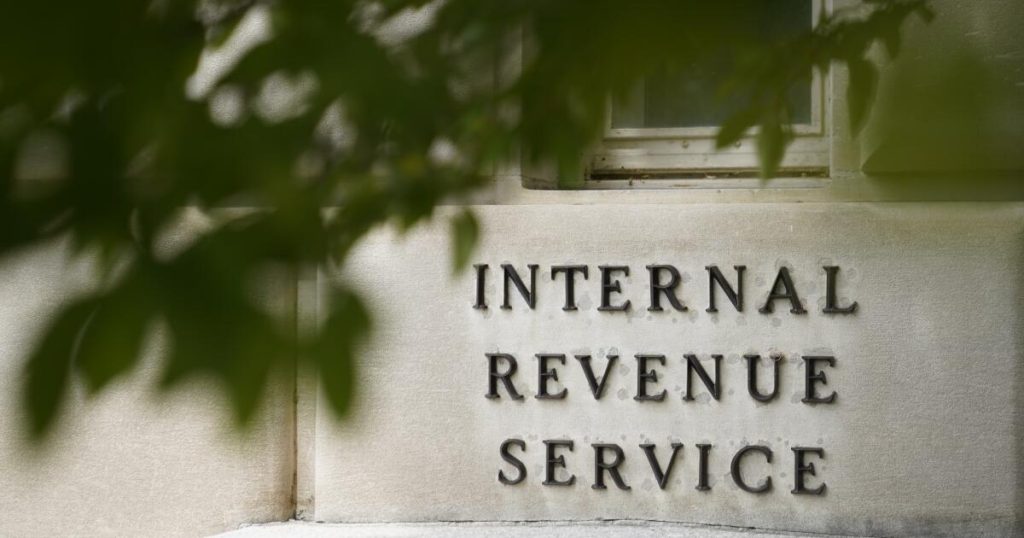Mass Layoffs at the IRS During Tax Season Spark Concern and Controversy
In a move that has sparked widespread concern, the Internal Revenue Service (IRS), a division of the U.S. Department of the Treasury, is reportedly planning to lay off thousands of employees currently in their probationary period. These cuts are expected to take place as early as next week, right in the middle of the 2025 tax filing season. This decision comes as part of the broader efforts by the Trump administration to reduce the size of the federal workforce. The administration has directed federal agencies to terminate nearly all probationary employees who have not yet gained civil service protection. This move has raised questions about the impact on the IRS’s ability to handle the demanding tax season, which officially began on January 27, 2025, and is expected to see over 140 million tax returns filed by the April 15 deadline.
The layoffs are part of a larger initiative by the Trump administration to shrink the federal bureaucracy. Earlier, the government announced a plan to offer separation packages to nearly all federal employees through a “deferred resignation program.” This program aimed to quickly reduce the federal workforce by allowing employees who accepted the offer to stop working immediately but continue receiving their salaries until September 30, 2025. The deadline for this program was February 6, 2025. However, IRS employees involved in the 2025 tax season were informed in a recent letter that they would not be allowed to accept the voluntary separation offer until after the tax filing deadline. This exception highlights the critical role these employees play during tax season, but it also leaves many wondering about the long-term implications of such layoffs.
The exact number of IRS employees who will be affected by the layoffs remains unclear. Representatives from the Department of the Treasury and the IRS have not responded to requests for comment, leaving many questions unanswered. This lack of transparency has fueled speculation and concern among federal workers and the public alike. The timing of the layoffs, during the busiest time of the year for the IRS, has also raised eyebrows. The agency is already under significant pressure to process millions of tax returns efficiently, and the loss of staff could exacerbate existing challenges. Additionally, the layoffs come after years of underfunding and staffing shortages at the IRS, which have been exacerbated by political battles over the agency’s budget.
In contrast to the current administration’s efforts to reduce the federal workforce, the Biden administration had previously made significant investments in the IRS. As part of the Democrats’ Inflation Reduction Act, which was signed into law in 2022, the IRS received an $80 billion funding boost over a decade. This investment was intended to modernize the agency, improve customer service, and enhance tax enforcement. The funding was also expected to allow the IRS to hire tens of thousands of new employees to address staffing shortages and improve efficiency. However, these plans have been derailed by Republican efforts to reclaim the funds and reduce the agency’s budget. This political back-and-forth has left the IRS in a state of flux, with employees facing uncertainty about their jobs and the agency’s future.
The debate over the IRS’s funding and workforce has also drawn in high-profile figures like Elon Musk, the billionaire CEO of Tesla and SpaceX. Musk, who has been a vocal critic of government spending, has called for drastic reductions in federal expenditures, including the elimination of entire government agencies. Through his “Department of Government Efficiency,” Musk has proposed radical cuts to government programs and agencies, arguing that such measures are necessary to streamline operations and reduce waste. However, these proposals have faced significant opposition from elected officials and advocacy groups, who argue that such cuts would harm critical government services and exacerbate inequality.
The controversy over the IRS layoffs and funding cuts has also spilled into the courts. On January 25, 2025, the attorneys general from 14 states filed a lawsuit challenging the authority of Musk’s Department of Government Efficiency to access sensitive government data and wield what they described as “practically unchecked power.” The lawsuit, filed in a federal court in Washington, D.C., argues that Musk’s actions as the head of the department exceed the authority granted to him by law. It also contends that only Senate-confirmed officials have the constitutional authority to carry out such duties, citing provisions in the U.S. Constitution that outline the powers of Congress and the president. The lawsuit is the latest salvo in a growing battle over the role of the federal government and the limits of executive power.
In conclusion, the planned layoffs at the IRS during tax season have sparked a heated debate about the future of the federal workforce, the role of government, and the impact of political decisions on critical public services. While the Trump administration and its allies argue that reducing the federal bureaucracy is necessary to streamline government operations and reduce spending, critics warn that such cuts will harm the IRS’s ability to serve taxpayers and enforce tax laws. The involvement of high-profile figures like Elon Musk has added fuel to the fire, with opponents arguing that his proposals represent an overreach of executive power. As the legal challenges and political battles continue, one thing is clear: the future of the IRS and the federal workforce hangs in the balance.









